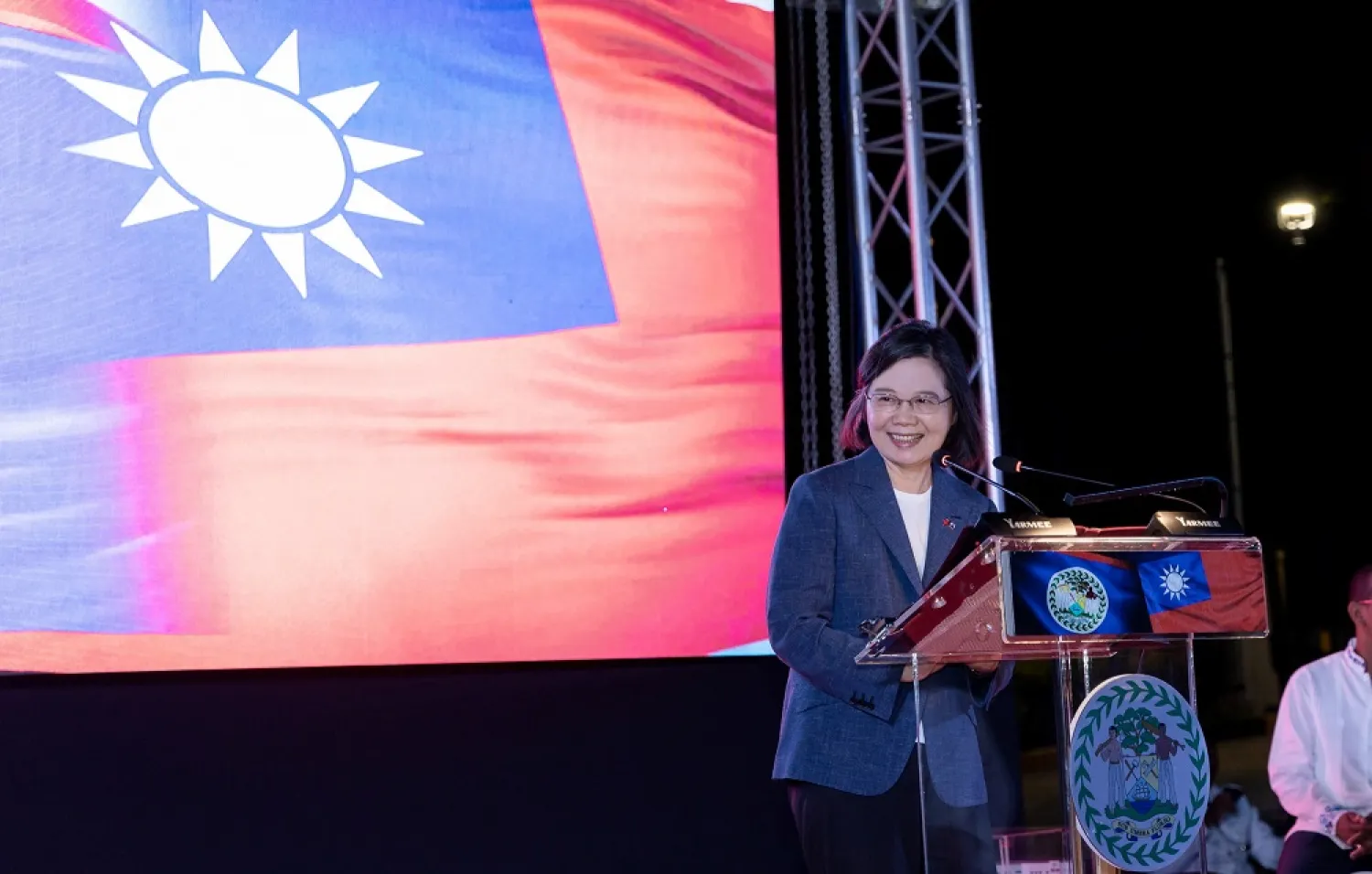Taiwan pushed back against threats of retaliation by China, ahead of an expected meeting between President Tsai-Ing-wen and the US House speaker Wednesday that will underscore her government's claim to sovereignty.
Tsai has been visiting the island's remaining diplomatic allies in Latin America, Belize and Guatemala. The most politically sensitive part of her trip will be a meeting with US House Speaker Kevin McCarthy in Los Angeles while she transits on her way back home.
China views Taiwan as its own territory and treats any dealings between US and Taiwanese officials as a challenge to its sovereignty. Tsai's tour is a bid to demonstrate that her government has international support.
Belize and Guatemala are two of just 13 countries that formally recognize Taiwan, a number that has dipped as China has put pressure on and funneled money into isolating the island. Tsai's Latin American trip comes just a week after Honduras announced it was cutting ties with Taiwan in favor of China, potentially prompted by a $300 million hydroelectric dam project in central Honduras built by a Chinese company.
Last week, and again on Monday, China threatened with countermeasures if Tsai met with McCarthy. The Chinese Consulate in Los Angeles issued a statement Monday saying it opposed any “any form of contact” between Taiwan authorities and the US.
“The reality and current situation that both sides of the (Taiwan) Strait belong to one China is very clear,” the statement said.
A spokesperson for the Ministry of Foreign Affairs said at a daily news briefing Tuesday that China “will closely follow the developments and resolutely defend national sovereignty and territorial integrity.”
Taiwan's Ministry of Foreign Affairs said that it has never been part of China, and that China's recent criticism has become increasingly “absurd.”
“Taiwan, the Republic of China, is a sovereign country, and has the right to make its own determination in developing relations with other countries in the world,” it said in a statement. “It does not accept interference or suppression by any country for any reason, and will not limit itself because of intimidation or interference.”
The United States’ longstanding “one-China” policy acknowledges that the Chinese claim Taiwan as their territory. However, the US does not endorse that claim and remains Taiwan’s most important provider of military hardware and other defense assistance.
China has repeatedly asserted its claim to Taiwan, though Taiwan maintains its own democratic system of government since the sides split after a civil war in 1949.
Keeping up the military pressure, China's People’s Liberation Army sent 20 warplanes toward Taiwan Monday to Tuesday as well as three warships in the latest round of exercises, which have increased significantly in recent years.
China regularly sends warplanes around the island and has at times seemingly used the exercises as a demonstration of its ire.
Last December, China sent 71 planes and seven ships toward Taiwan in a 24-hour display of force after it expressed anger at Taiwan-related provisions in a US annual defense spending bill.
And last year, China responded to a visit by then-House Speaker Nancy Pelosi to Taiwan with the largest live-fire drills in decades that included firing a missile over the island, which had landed in Japan's exclusive economic zone.
The PLA’s increased military activity near Taiwan has raised concerns among regional governments, and also drawn greater international attention and rhetorical support for Taiwan’s defense. US legislators have also started visiting Taiwan at a greater frequency, as anti-China sentiment and concerns over China's strategic position grows in Congress.









